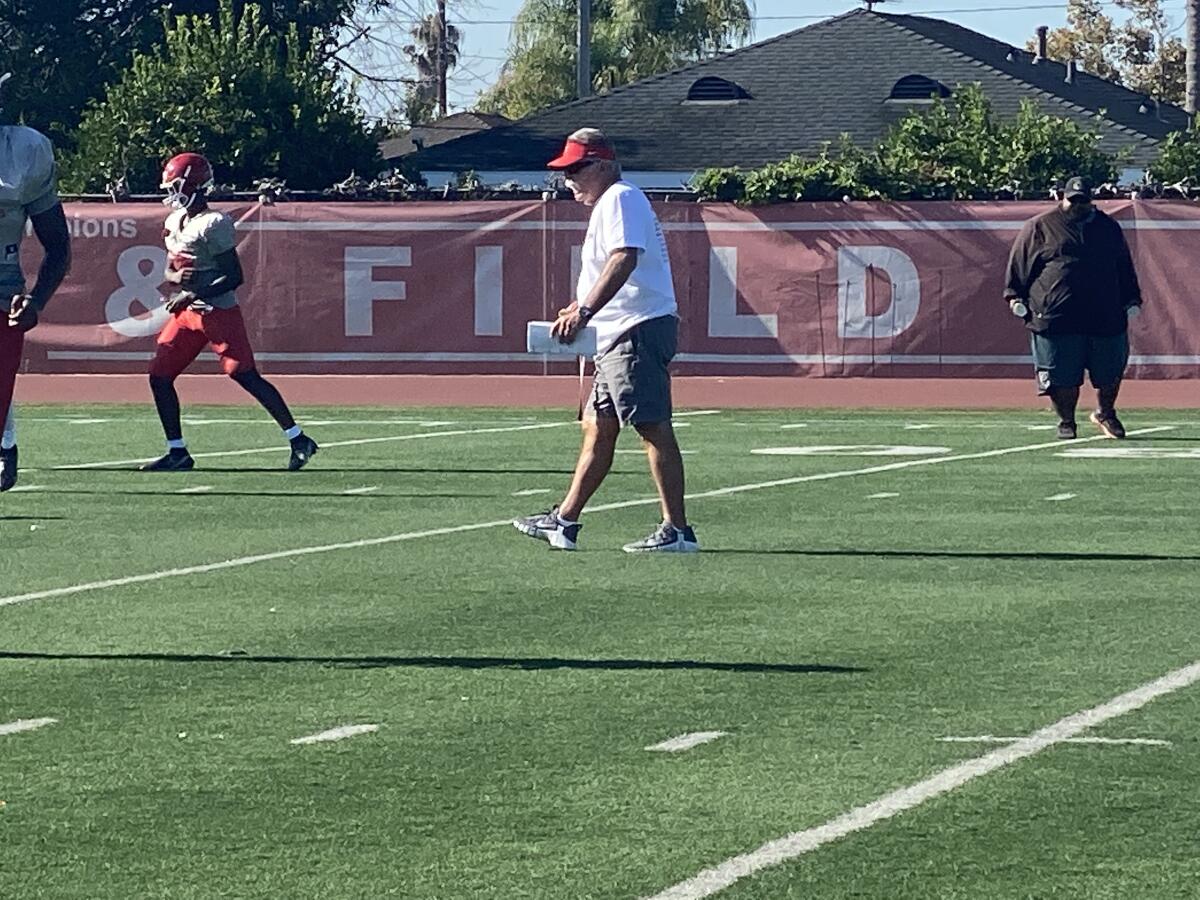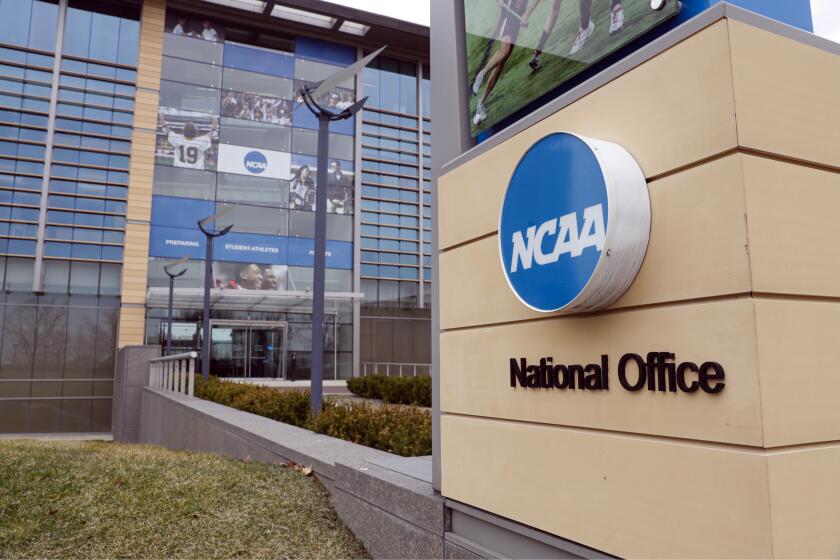High school athletes already being approached for NIL representation

- Share via
As if preparing his team for the 2021 football season isn’t enough of a challenge, Santa Ana Mater Dei coach Bruce Rollinson is also trying to do research on what his top players can and cannot do in regards to the new era of name, image and likeness deals for college athletes.
“I have had some players that have been approached by organizations that want to represent them when they move on to college,” Rollinson said earlier this week. “I’m assuming when they sign in December or early February, now they can foster opportunities for those kids, because their eligibility is done. But who knows? I don’t think anybody is going to get paid while they are in high school. Absolutely not. But I know they are being approached by representatives or businesses.”
The NCAA Board of Directors agrees to allow athletes to start earning money based on their fame and celebrity without fear of endangering eligibility.
Rollinson said he is seeking guidance from colleges on recommendations for his players that are in the upper echelon of prospects.
“It’s very hard to get information because the NCAA is basically nonexistent,” he said. “I am appealing to various universities to send me what their compliance has. I have not seen anything from the CIF, and I have confidence [Southern Section commissioner] Rob Wigod will get something out, but right now I’m talking to the parents and saying whatever you do, don’t sign anything.”
Mater Dei’s No. 1 player is cornerback Domani Jackson, a USC commit who is the fastest teenager in California after tying the state record in the 100 meters in June when he ran 10.25 seconds. He’s expected to be one of those elite players with NIL opportunities in college.
According to CIF Rule 212, players would be ineligible if they received an athletic award totaling more than $250. That doesn’t prevent an athlete from receiving money for being an actor, running a business or making music in high school.
As for college eligibility, Ron Nocetti, the executive director of the CIF, said it’s up to athletes to make sure anything they do doesn’t compromise their amateur status within their particular sport at the next level. In response to a Supreme Court ruling, as of July 1, NCAA rule changes and new state laws have given college athletes new opportunities to make money off their name, image and likeness.
More to Read
Get our high school sports newsletter
Prep Rally is devoted to the SoCal high school sports experience, bringing you scores, stories and a behind-the-scenes look at what makes prep sports so popular.
You may occasionally receive promotional content from the Los Angeles Times.








